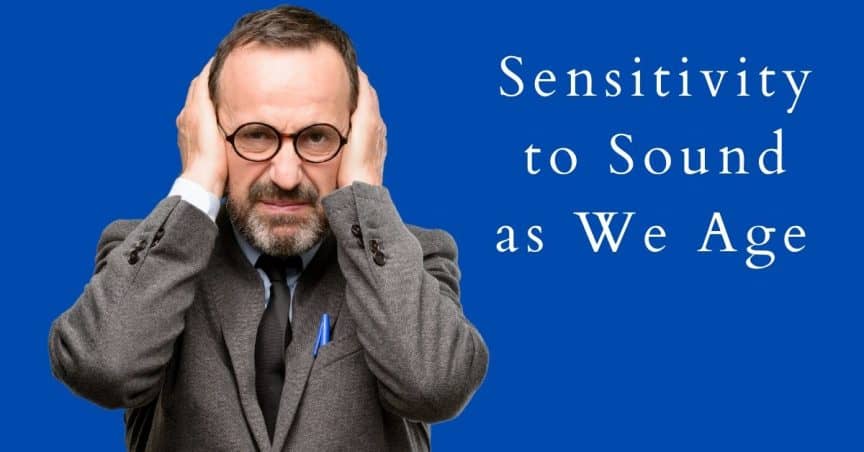- A Closer Look at Common Myths About Hearing Loss - May 7, 2024
- The Impact of Pets on Emotional and Hearing Health - April 26, 2024
- Strategies for Coping with Single-Sided Deafness - April 16, 2024
When you think of the relationship between loud sounds and aging, a common stereotype might come to mind. Imagine two neighbors—one a rollicking musician in her 20s and the other a 65-year-old who enjoys reading in the evening. As the cliché would have us believe, the 65-year-old becomes irate every time the youngster practices the drums, complaining to loved ones or even calling the authorities. Although this is a silly caricature of the differences between people according to age groups, what if there were a neurological basis for this common image?
Study on Age & Sound Sensitivity
A recent study in the Journal of Neuroscience reports that there may be a biological relationship between age and sound sensitivity. Researchers out of Western University in Canada found that sensitivity to a range of sound volumes actually increases with age. The study by Western Research Chair in Cognitive Neuroscience Ingrid Johnsrude and BrainsCAN Postdoctoral Scholar Björn Herrmann looked at two groups of people in their 20s and 60s. Each group had normal hearing ability, in order to control for the countervailing effect of hearing loss on sound sensitivity.
The researchers looked specifically at the responses of these two different groups of people to a loud sound environment, such as a rock concert. Although the overall decibel level of the event was quite loud, that loudness was not the source of distress for the older group of participants. In fact, it was the sensitivity to quieter sounds that made it difficult for the older group to listen and enjoy the setting. People in the younger cohort of research subjects found themselves able to easily tune out quieter sounds when they engaged in listening to a louder sound of focus, such as a guitar melody. They were able to focus on that sound to the exclusion of the other quieter sounds in the room, such as talking audience members, noises coming from the bar, or shuffling feet.
Although the younger patrons were able to limit the context of hearing to a louder sound, the older research participants remained sensitive to the entire range of sonic information in the room, making it quite distracting and even distressing.
Understanding How We Hear
The auditory cortex is responsible for filtering through the wide range of sounds to isolate the important ones for cognition. Take, for instance, a dinner at a loud restaurant. The auditory system makes it possible to listen to the voice of one person in the room, while remaining aware of quieter sounds in the background of your mind. Should they become important, such as the sound of a neighboring diner asking you to pass the salt, your brain is able to switch its attention and focus on that quieter sound when it becomes necessary. The contribution of this research is that age is highly correlated with the ability of the auditory nervous system to perform this function, even among people with normal hearing. When you add to the context the likelihood that older people are experiencing hearing loss, the challenges facing older listeners to loud sounds become multi-dimensional.
Treating Hearing Loss
At least 40 percent of people aged 50 or older have some form of hearing loss, so sound sensitivity is a crucial consideration for communities and policy makers alike. Although the sound of someone practicing the drums might be negligible to younger ears, older residents can have significant distress from a combination of loud and soft sounds.
In the first place, consideration of elderly residents is an important dimension of community membership, whether you are young or old. In addition, accommodations for older community members should include support for the greater sensitivity they demonstrate on average. However, sound sensitivity must be considered in combination with the high proportion of older people to experience hearing loss. If someone you love struggles with sound sensitivity or hearing loss, encourage a hearing test with your hearing health professional.
Although this study has discovered a relationship between age and sound sensitivity, that does not mean that there is nothing to be done to treat hearing issues. Hearing assistance technology improves at a rapid rate, and you will be surprised to find how many options are available to suit many hearing needs and lifestyles. Contact us today to learn more!

